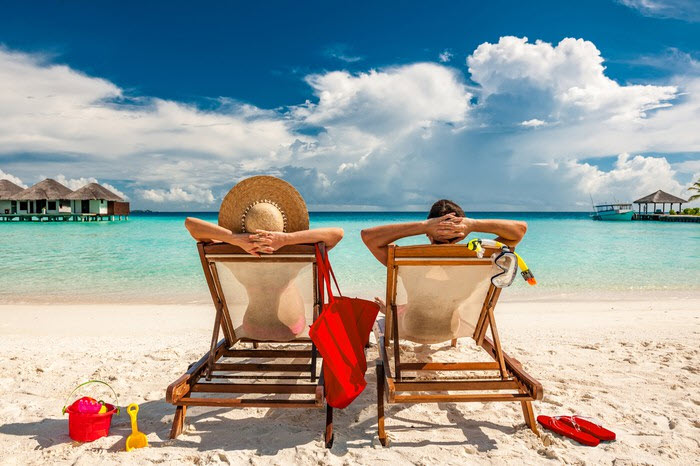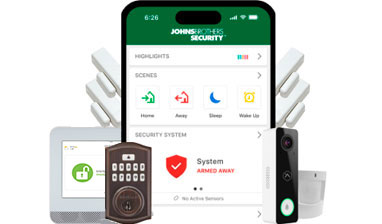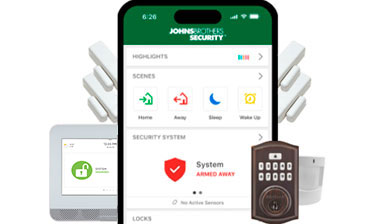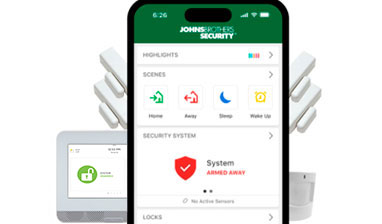
Vacations should be about relaxation, but any time you travel, you magnify certain risks. A vacant house may be more vulnerable to break-ins and other problems. Crowded transportation facilities and tourist areas may put you at personal risk, and this can be compounded by being in an unfamiliar environment.
But with a few simple steps, you can increase your security while on vacation and make having fun someplace special as safe as staying home.
Nothing protects your home while you’re away like an electronic home security system. Not only do they detect attempted break-ins and report them to the police, but they also monitor for fire, and some can also control lights and door locks and monitor for flooding, furnace failure, accumulation of gas and other hazards. New internet-connected systems enable the user to check and control everything remotely on a smartphone or tablet.
If you don’t have a security system that controls the lights, set a timer to turn them on and off to give the appearance that someone’s home.
Put your mail and newspaper deliveries on hold. Mail that accumulates on your doorstep or in an overflowing mailbox is a sure sign that you’re away. (Setting up your recurring bills for paperless billing will reduce the amount of mail you receive, as will paying as many bills as possible before you go on vacation to prevent late notices from being mailed.)
Tell a trusted neighbor that you’ll be gone, and ask them to keep an eye on your house and not to tell anyone else. Let that person have your contact information so they can get in touch if something goes wrong, or give them the contact information of another friend or family member who knows how to contact you while you’re away.
Aside from people who need to know, don’t advertise the fact that you’ll be gone. Word gets around, and some people who hear it might be ones you wouldn’t want to know about it. Keep your vacation plans off of social media before you go and while you’re there. You can always post your photos when you return.
As you go through airport security, place your laptop and other valuables on the scanner belt last so they arrive just as you’re being cleared. You don’t want them sitting around at the pickup end of the belt while you’re still being wanded or patted down.
Place carry-on luggage under your seat or in the overhead bin across the aisle instead of above your seat. That way, you can keep on eye on it.
Check your room when you arrive and whenever you return to it. Make certain doors and windows are locked, including doors to adjacent rooms. Don’t open the door to anyone you do not know. Keep your phone and tablet with you, as communication can be vital to your personal security.
Make a copy of your passport in case you should lose it, and keep it separate from your passport and wallet. Don’t carry cash, credit cards and passport all together: spread them out in different pockets and wallets. If your room has a safe, leave most of your cash in it and carry only the amount you’ll need for the day. Protect credit cards and passports against RFID (Radio Frequency Identification) theft with special wallets or devices designed to block radio signals. Don’t leave your credit card on a table or counter where someone might take note of the number. Take it out of your wallet when you are ready to pay for a transaction, and put it away as soon as you get it back.
For more information about home and business security in Virginia Beach, Norfolk, Chesapeake, Suffolk and all over the Outer Banks, contact Johns Brothers Security at 800-242-9760.

Our most complete package features protection, automation, and video delivered to your smartphone.

Our most popular smart security package features more than protection – it’s your pathway to home automation.

The essential security package features affordable protection with a wireless connection.
Get a free consultation and the latest smart home tips & tricks